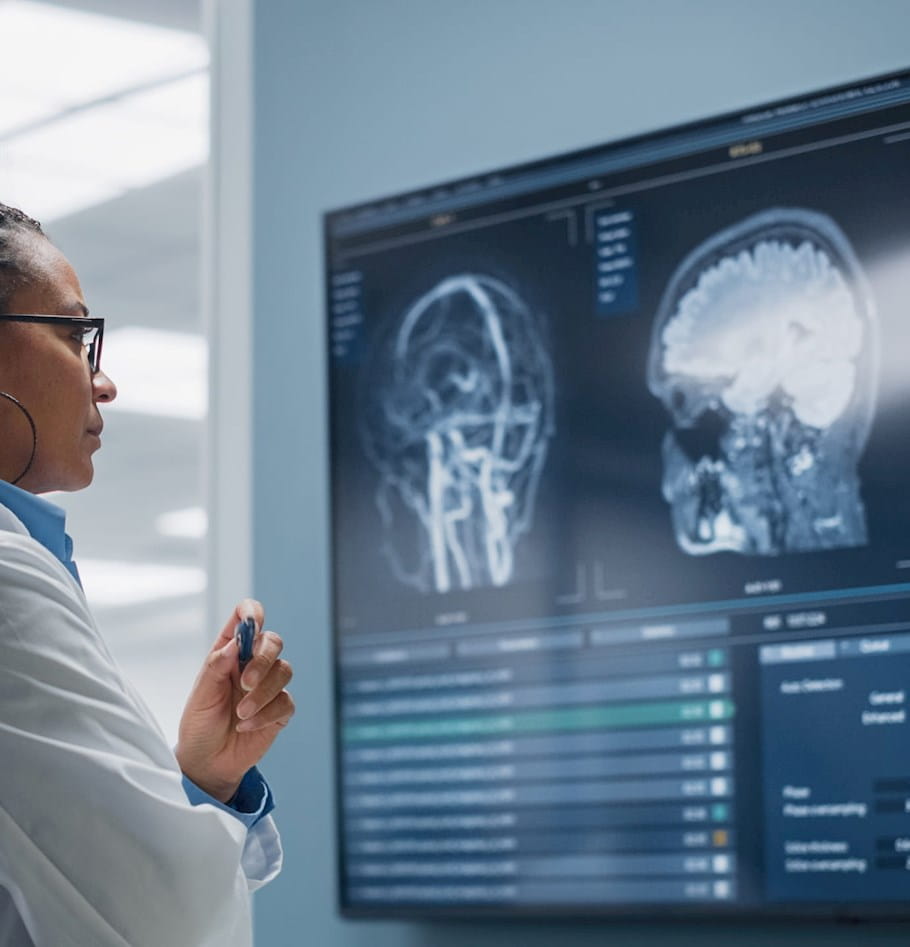How pharma companies can enhance patient support programs with generative AI
As use cases for generative AI continue to proliferate—and as the technology continues to evolve—one area of practical application has caught our eye for pharma companies: patient support programs. Not only can generative AI augment existing patient support channels (phone, chatbot, SMS, etc.) it also opens to door for replacing some of those traditional modes with capabilities that are more sophisticated, personalized, efficient, and cost-effective.

Let’s take a closer look at a few areas of day-to-day patient support where generative AI can be deployed to help pharma companies deliver more tailored, personalized programs.
1. Streamlining and enhancing the prior authorization (PA) process to limit the administrative burden on pharmaceutical companies, payers, providers, and patients.
-
The PA process is one of the most complicated, time consuming, and cost prohibitive activities within the pharmaceutical industry. Generative AI has the potential to alleviate some of this burden through the organization of EHR data, parsing emails between HCPs, and reviewing payer/pharma policies and medical protocols to determine in an efficient and objective manner if a patient can be prescribed a product.
-
Administrative fees, which account for 25% of healthcare spending, can be reduced by utilizing this capability to streamline the PA process, leading to savings of pharmaceutical companies’ time, money, and valuable resources.
2. Generating personalized health content based on the patient medical history. This content can be delivered using currently available communications methods e.g., email, SMS etc. The intent will be to drive the patient’s medication adherence through recurring reminders for prescription fill and consumption of medication.
-
This personalized support for activities such as medication reminders and additional information can armor patients against one of the pharmaceutical industry’s biggest challenges: medication non-adherence, which costs companies billions worldwide each year.
3. Transcribing interactions between healthcare professionals and patients to support tracking patient-specific trends and providing ongoing and consistent support.
-
In a typical patient services organization, most calls are focused on access, dosages, and side effects. With appropriate indication-specific training, generative AI has the potential to manage the most common support requests—unlike traditionally programmed chatbots. If it encounters a request that it cannot handle, it can easily triage the request to a provider and provide appropriate context to facilitate seamless processing of the service requested.
Being prepared is essential in any cutting-edge technology application, including generative AI. To effectively utilize this technology, it's important to identify and test use cases to ensure that the technology is used appropriately and at the right time. Although this technology has great potential and seemingly boundless applications, there are always risks and challenges that must be evaluated and mitigated as part of any implementation plan.
The road ahead
There’s no question that generative AI has some very promising use cases in patient services organizations and that pharma companies can and should be looking at ways this technology can improve their patient support programs. While general concerns around privacy, inherent biases, and cybersecurity are certainly well-founded, these issues can be addressed and mitigated with good planning and thoughtful execution.
Also, considering the immense potential of this technology, we’ll continue to see new solutions and applications emerge that aim to address these larger concerns and provide tailored solutions for pharmaceutical companies. While there are some early-stage solutions available that can train the model and provide a jump start to using generative AI, pharmaceutical companies should be cautious about entrusting critical points of patient connection to external vendors in the early stages of adoption. At this point, at least, leaning on internal resources to train AI models and stay up to date on the current AI trends to tailor specific solutions for patient services programs is going to be the best course of action for pharma companies looking to take advantage of this rapidly developing technology.
Now is the time to begin. Identify areas of need, prioritize use cases, acknowledge risks, and develop and implementation plan that fits within a longer-term roadmap of future capabilities to which generative AI may be applied for patient services.



